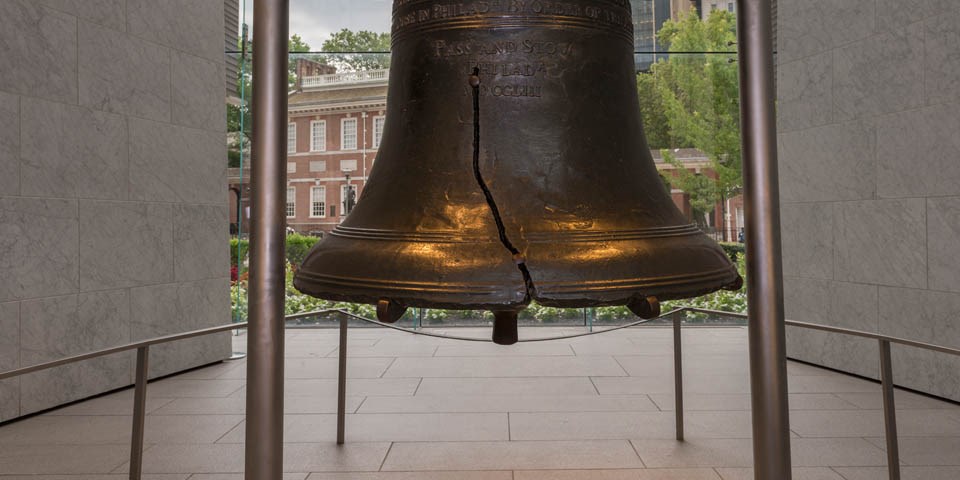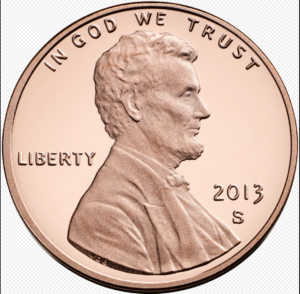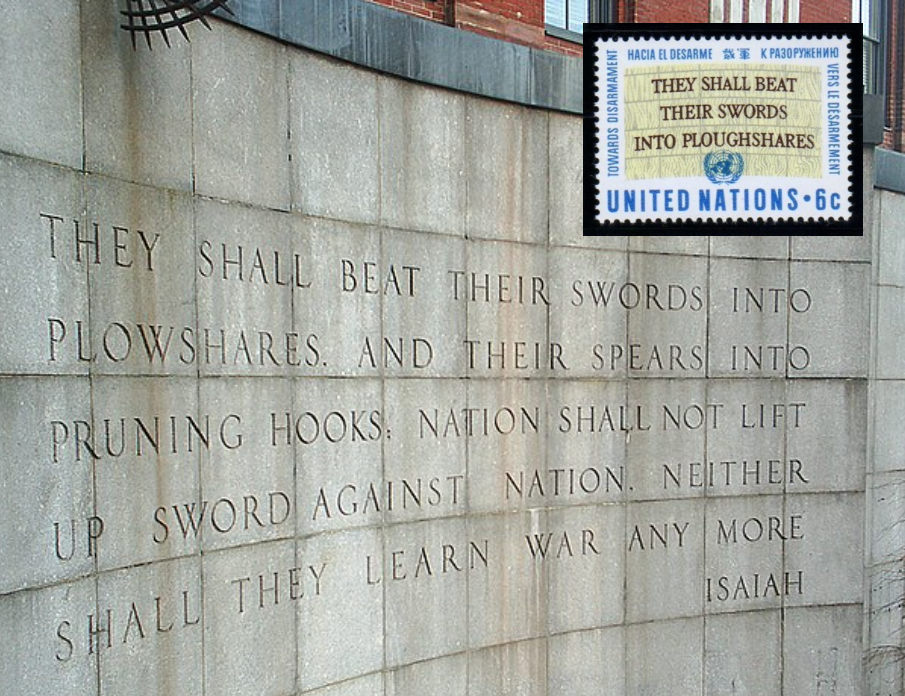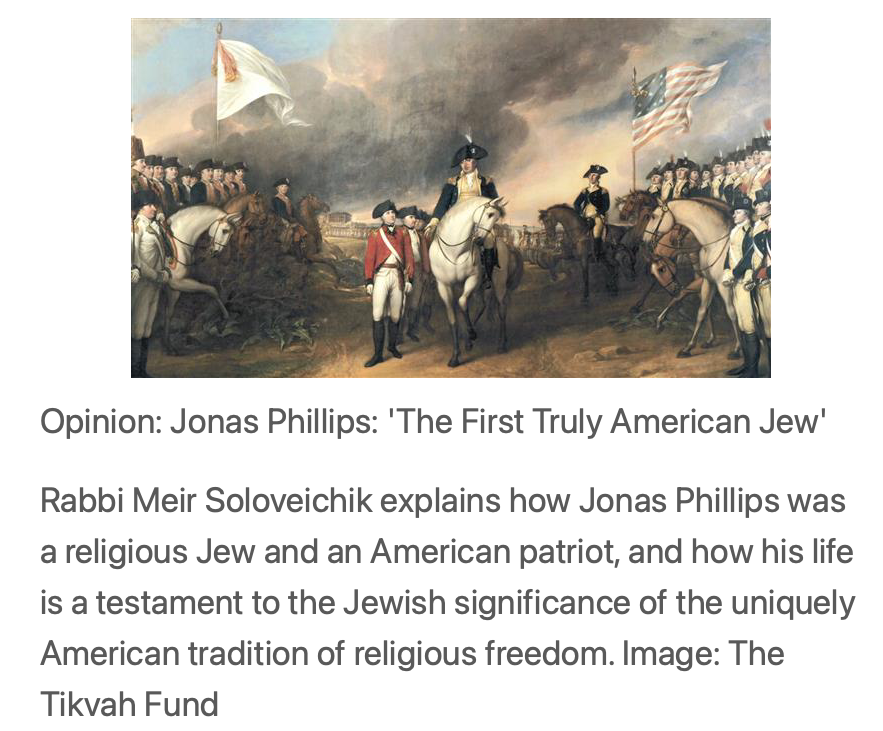“The American Republic was born to the music of the Hebrew Bible.”
The Liberty Bell
July 4th is Independence Day in the United States of America. ((At the end of the day, the value of any society including the US must be judged solely by the Torah of Hashem. In this post, we explain some of the impact the Torah has had on mankind and on the US.)) “Proclaim Liberty Throughout the Land” is a verse from the Torah, and is inscribed on the Liberty Bell in Philadelphia, an iconic symbol of American independence, located in Philadelphia, Pennsylvania.

Once placed in the steeple of the Pennsylvania State House (now renamed Independence Hall), it was cast with the lettering “Proclaim LIBERTY Throughout all the Land unto all the Inhabitants Thereof”, a Biblical reference from the Book of Leviticus (25:10). The bells were rung on the 8th of July, 1776, to mark the reading of the United States Declaration of Independence.
Perhaps no leader in American history was as moved by the ideas voiced in America’s Declaration of Independence as Abraham Lincoln. In a speech in Chicago that he delivered on July 10, 1858, he asks how American immigrants enjoy the same rights as descendants of the Declaration’s signatories: on what grounds can a new American believe that he is entitled to the same privileges of American citizenship as a direct descendant of Thomas Jefferson?
Lincoln answered that America’s independence points toward the truth of human equality [not the modern distortion that goes under the moniker “equity, diversity, etc.”], an equality protected for American citizens by the law of the land and the moral values and cultural buttresses that hold it in place. This idea — rooted only in the Bible and nowhere else — asserts the dignity of man created in the image of G-d, the transcendental Creator. Any person could become an American by virtue of accepting the fundamentally Biblical values on which the country was founded.
Lincoln would later refer to the Declaration of Independence as an “apple of gold,” framed by a “picture of silver” that is the American constitution and the union that it governs, another verse taken from the Tanach. ((Rabbi Meir Soloveichik, Reflections on Lincoln’s Proverbs, Episode 243, in Bible365 podcast series.))

The current war waged by the atheistic Left, China and militant Islam against the founding values of the American revolution [as opposed to French revolution] is ultimately a war that is being waged against G-d, His Torah and the Torah Nation. The US is just the surrogate in this war. This war was initiated over 200 years ago by the intellectuals of the Enlightenment (and their heirs) such as Hobbes, Hume, Kant, Marx, Darwin, Rorty and the great trickster of postmodernism — the French philosopher and deconstructionist Jacques Derrida.((https://en.wikipedia.org/wiki/Phallogocentrism, accessed July 4, 2022)).
The war against the West, and in particular against the founding principles of the US ((Denis Prager (Jewish World News, July, 2022) writes that on the front of one of the oldest churches in the country, the Church of the Covenant in Boston, hangs a large banner on which is written: “And God said…” which enumerates banner headlines such as “Protect Abortion Access 4 All”, “Ensure Black Lives Matter”, “Honor Bodily Autonomy, “Defend LGBTQ+ Rights”, “Abolish Prisons”, etc. If you needed one example of how destructive leftism has been to mainstream Christianity, both Catholic and Protestant, and to non-Orthodox Judaism, this banner would suffice. God says, “Protect Abortion Access For All”? Where? Why? Terminating innocent life, that’s God’s will? Does this include abortions of viable babies undergone by healthy mothers? Is that, too, God’s will? “Ensure black lives matter”? Blacks, like every other racial, ethnic and national grouping of human beings are created in G od’s image. But if this banner implies support for the group Black Lives Matter, that is another matter. G od abhors groups that affirm racism. Unlike the Left, the Bible knows that anyone, black or white, can be racist. As regards LGBTQ+, the Bible goes out of its way to uphold divine distinctions such as good and evil, God and human, human and animal, and male and female. When God creates the human being, the Bible asserts this last distinction as clearly as possible: “Male and female He created them” (Genesis 1:27).)) has caused great damage and moral decline.((The damage includes gender confusion, the slaughter of the unborn, the violation of the sanctity of marriage and the venom of critical race theory. This abolition of the soul of man undermines the Biblical principle of the dignity of the individual. What about the resulting decadence? In the “The disappearing American” (Jewish World Review, July 2022), Victor David Hanson writes that historically, as Westernized cultures become more affluent and leisured, whether it’s ancient Rome or modern America and Europe, they birth fewer children – even as their appetites for more household and personal help spike. The 2012 Obamacare ad, “The Life of Julia,” fixated on the new ideal American woman: a single parent of one child, unmarried, and utterly reliant on nearly 65 years of government support. The 2013 follow-up bookend ad fetishized “Pajama Boy.” He was supposed to be a typical prolonged-adolescent, man-child – sitting at home in his child-like footie pajamas, sipping hot chocolate. “Pajama Boy” was likely the sort that “Julia” had no intention of marrying. The real gender crisis in America are these listless and stalled 20-something men. Too many are still living at home, not fully employed, often in debt, hooked on social media, video games, or satisfying their appetites – and with scant interest in marrying, much less raising children. In just 14 years the fertility rate has crashed from 2.12 to 1.64 – meaning that both citizens and resident aliens in America are not replacing themselves. ))
One wonders how much longer the phrase from Isaiah (2.4) will be associated with the UN complex in New York: “they shall beat their swords into plowshares, and their spears into pruning hooks; nation shall not lift up sword against nation, neither shall they learn war any more“. ((Around 1950, perhaps in anticipation of a successful United Nations, the quote from the Bible (Isaiah 2:4) was added to the curved wall of a small plaza (now known today as Ralph Bunche Park plaza). Despite the fact that the plaza is not part of the UN complex, the Isaiah quote has become inexorably associated with the United Nations, as evidenced by the stamp issued in 1967. In 1975, no doubt due to its proximity to the UN building, this plaza was dedicated to Ralph Bunche (1904-1971). Bunche participated in the drafting of certain parts of the UN Charter and served as head of the UN’s Trusteeship Council for many years. He also acted as mediator for various peace negotiations, namely in the Middle East, for which he received the Nobel Peace Prize in 1950. And, according to Bunche’s biographer, the Isaiah 2:4 quote was his favorite. ))

The Tanach
The Jewish Bible (Tanach) forms the cornerstone of the two largest monotheistic faiths Islam and Christianity. So it is difficult to explain much of the history of the Western world, and a good part of Eastern history, without referring to that cornerstone. The Tanach has been been translated into almost every language. It has plausibly had more influence on the lives, values and thoughts of humanity than any other single work.(( Indian philosopher Vishal Mangalwadi grew up in the Hindu and Bhuddist traditions. In his book “The Book That Made Your World: How the Bible Created the Soul of Western Civilization” he reveals the personal motivation that fueled his own study of the Bible and systematically illustrates how its precepts became the framework for societal structure throughout the last millennium. From the book cover: Whether you’re an avid student of the Bible or a skeptic of its relevance, the book will transform your perception of the Bible’s influence on virtually every facet of Western civilization. From politics and science, to academia and technology, the Bible’s sacred copy became the key that unlocked the Western mind. Through Mangalwadi’s wide-ranging and fascinating investigation, you’ll discover: What triggered the West’s passion for scientific, medical, and technological advancement. How the biblical notion of human dignity informs the West’s social structure and how it intersects with other worldviews. How the Bible created a fertile ground for women to find social and economic empowerment. How the Bible has uniquely equipped the West to cultivate compassion, human rights, prosperity, and strong families. The role of the Bible in the transformation of education. Mangalwadi examines the origins of a civilization’s greatness and the misguided beliefs that threaten to unravel its progress. The Bible transformed the social, political, and religious institutions that have sustained Western culture for the past millennium, and now secular corruption endangers the stability and longevity of Western civilization.)) It represents a singular achievement in the annals of human cultural, moral and intellectual history — from a small nation that originated in the land of Israel almost 4000 years ago. The founding of the United States under Biblical values has — on the whole — been an unprecedented boon to mankind, ((Rav Moshe Feinstein zt”l has called America a “malchus shel chesed“. The American penny has inscribed on it “In God we trust”. America has freed millions around the globe, raised billions from poverty, and shaped the destiny of nations and continents around the principles of its Declaration of Independence. See Dennis Prager, Still the Best Hope: Why the World Needs American Values to Triumph, HarperCollins, 2013.)) and has saved mankind twice: once from the Nazis and again from the scourge of Communism under Lenin, Stalin and Mao.
Rav Avigdor Miller zt”l
on Celebrating July 4th
Q:
Is displaying the American flag on July 4th a good thing? Or is it considered a gentile idea?
A:
Let me tell you something. Fifty years ago I wouldn’t have spoken about this. I’ve been speaking more than fifty years in public but I didn’t speak about any American flags. You don’t need it. Who needs American flags? It wasn’t necessary.
Today however if you want to do it, I say yasher koach. Do you know why? Because all the reshaim [evildoers] are trampling on the flag and they’re trying to desecrate America. You know why? Not because they’re good gentiles. It’s because they’re reshaim gemurim. The liberals [today, the left] are trying to ruin everything. And when that wicked Supreme Court permitted burning an American flag and said you cannot make a law against it, it was a desecration of America.
After all, America is a good country. We came from countries where we were persecuted and this country gave us all the rights. I say we should kiss the ground of America. I was in Europe for some time. I went to study in the yeshivah there. And when I came back I saw that America was a blessed country. It’s a gift of Hashem to us. Shouldn’t we appreciate it?
And therefore I say a Jew should hang out the flag. Yes; today yes. I won’t say you’re a sinner if you don’t but I think it’s a good thing to hang out the flag today. It’s not a contradiction to being a frum Jew. It’s not a contradiction by any means. We hang out the flag from this shul on the Fourth of July.
TAPE #750 (July 1989)
A Kosher Fourth of July (WSJ)
https://www.wsj.com/articles/a-kosher-fourth-of-july-11562020803
William McGurn, July 1, 2019, Wall Street Journal
Two hundred forty-three years ago, a new nation was inspired by the Old Testament.
Since that fateful July 4 when the Second Continental Congress invoked the unalienable rights to life, liberty and the pursuit of happiness to declare independence from King George III, an argument has raged over the Christian roots of the American Founding. Now a group of scholars suggest that if we are looking only to the Gospels to understand the new American nation, we may be arguing over the wrong testament.
“The American Republic,” they write, “was born to the music of the Hebrew Bible.”
The book is called “Proclaim Liberty Throughout the Land: The Hebrew Bible in the United States: A Sourcebook.” The title comes from Leviticus and is inscribed on the Liberty Bell in Philadelphia. The book comes courtesy of the Straus Center for Torah and Western Thought at Yeshiva University, where it was pulled together by Meir Soloveichik, Matthew Holbreich, Jonathan Silver and Stuart Halpern.
These men are not arguing that America was founded as a Jewish nation. Nor is their subject Jews in America, or the role of Jews in the American Founding. Their proposition is more supple and profound: that at key moments in the national story, Americans have looked to the ancient Israelites to understand themselves, their blessings and their challenges.
The evidence, they say, is all around us. The American landscape is dotted with town names that reflect this understanding, from the Zions, Canaans and Shilohs to the Goshens, Salems and Rehoboths. And whether it is John Winthrop invoking a “covenant” to characterize the order the Puritans established with Massachusetts Bay Colony, or Martin Luther King more than three centuries later talking about having been to the mountaintop, Americans have long looked to the biblical Israelites for the “political and cultural vocabulary” to explain the American proposition.
Though this American affinity for the Israelites pre-dates the Revolution, the war for independence intensified the parallels. In their revolt against George III, the men of the 13 colonies saw themselves as modern Israelites escaping a latter-day Pharaoh. So when the Second Continental Congress created a committee to design a seal for the new United States, also on July 4, 1776, it was only natural that two of the committee members— Thomas Jefferson and Benjamin Franklin —turned to Exodus.
Jefferson proposed the seal feature the Israelites in the wilderness, led by a cloud during the day and a pillar of fire by night. Franklin suggested Moses extending his hand over the Red Sea, causing the waters to overwhelm Pharaoh in his chariot. These days, you could call these examples of cultural appropriation.
As the subtitle indicates, this is a sourcebook and not a sustained argument. But it is no less compelling. As the authors note, all these American allusions to the Israelites didn’t come from Jews. They came from Christians, low-church Protestants in particular.
With the possible exception of Martin Luther King, no American leader integrated the imagery and language of the Hebrew bible into his own speech as seamlessly as Abraham Lincoln, who as president-elect in 1861 spoke of his fellow Americans as the Almighty’s “almost chosen people.”
From the cadence of Psalm 90 in the opening of his Gettysburg Address (“four score and seven years ago”) to his letter telling the mayor of Philadelphia “may my right hand forget its cunning and my tongue cleave to the roof of my mouth if I ever prove false” to the principles of the Declaration of Independence and Constitution, to his invocation of Psalm 19 in his Second Inaugural (e.g., “the judgments of the Lord are true and righteous forever”), when Lincoln spoke the moral language of liberty, his words echoed the Hebrew Bible.
This was a double-edged sword when it came to slavery. Abolitionism found much to embrace: “I have heard their cry” (Exodus 3:7), “Let my people go” (Exodus 5:1), “Break every yoke” ( Isaiah 58:6) and so forth. But relying on Scripture for denunciations of slavery had its problems, beginning with Noah’s curse against the Canaanites in Genesis 9.
Jews describe Passover as zeman cheiruteinu, or “the time of our freedom.” Independence Day might thus be thought of as America’s Passover. And that magnificent second stanza of “America the Beautiful” ends with a line that could have been delivered by Moses: “Thy liberty in law.”
Across the land this July 4, American homes will play host to backyard barbecues, the company of family, friends and neighbors, maybe all topped off with fireworks. You might say it is the American version of what the Hebrew prophet Micah had in mind when he wrote that “they shall sit every man under his vine and under his fig tree, and none shall make them afraid.”
Which also happens to have been George Washington’s favorite way to describe the blessings of liberty we celebrate this and every Independence Day.